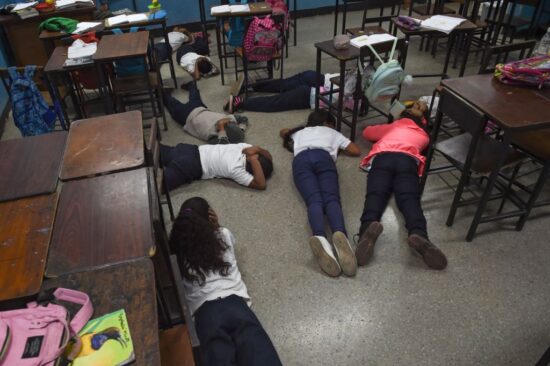On Saturday, the New York Times featured an article exploring the various measures around the world designed to outlaw homosexual acts and, in many cases, harass homosexual persons. Uganda, for instance, recently passed legislation singling out homosexuals for harsh penalties such as life imprisonment for those caught in acts of homosexuality. Moreover, the law targets those who aid or abet homosexual persons, along with anyone promoting homosexuality.
Of course, Uganda is not alone in how it treats homosexuality. Some Islamic regimes already include harsh penalties, including death, for homosexual persons. And, as we’ve already pointed out, Russia under Vladimir Putin attempts to masquerade as a “pro-family values” state because its law expresses disapproval of homosexuality, when in reality the government is accustomed to marginalizing unpopular minorities of all sorts (including evangelical Christians and orphaned children) for political gain.
So how should Christians think and speak about such laws?
As evangelical Christians, we believe what the catholic (small “c”) and orthodox (small “o”) church has always, and everywhere, believed: that sexuality is to be expressed only within the one-flesh union of the marriage of a man to a woman. Anything else is a sin against God. The church has believed this, and will always believe this, because the Bible teaches it.
At the same time, we believe laws criminalizing homosexual activity to be unjust and an affront to the image of God embedded in all persons.
Our opposition to imprisonment and execution of gay and lesbian persons around the world isn’t because we think, with the American sexual revolution, that governments have no interest in the stability of the family. To the contrary, Statecraft is quite often Soulcraft.
To this end, though, we believe a nation can teach a positive truth in its laws about marriage and sexuality without prohibiting and targeting its opposite. For example, we believe the role of the state should be to promote the stability of families and to provide appropriate incentives for children to be welcomed into homes with both a mother and a father. Our own government (along with many others around the world) has too often ignored this function of the state through failed policies emanating from no-fault divorce, among others.
Moreover, we sharply dissent from the use of state power, as we’ve seen in American life in recent days, to coerce the consciences of persons—whether Christian, Muslim, Jewish, or what have you—to participate in weddings or celebrations of unions we believe to be violations of our consciences.
But governments, as noted above, that single out persons for harassment and fear of their lives represent, in our view, a State that has overstepped its bounds drastically and unjustly. And in our view, repressive regimes that target homosexuals fall into this category.
Not everything that is sinful should be a crime. The Bible tells us that God has given authority to the state to maintain order and to carry out punishment of “wrongdoers” by the sword (Rom. 13:4). Clearly, “wrongdoers” here isn’t equated with “sinners.” Since we believe all of us are sinners (Rom. 3:23), the jails would be full and the streets empty because there would be none left unprosecuted, no not one.
The police power of the state is set up to maintain public safety and order according to principles of public justice. Everywhere in the New Testament, the mission of confronting personal sin is given to the church, not to the state. And the church, Jesus and his apostles explicitly tell us, does not have the coercive power of the sword (Matt. 26:52-53).
Moreover, the Bible tells us that the church must confront the sexual immorality of those inside the Body (“anyone who bears the name of brother”), but, even in the worst case of such immorality the ultimate step is excommunication, not the setting up of a police state to execute (1 Cor. 5:1-13). The Apostle Paul says, “For what do I have to do with judging outsiders? Is it not those inside the church whom you are to judge?” (1 Cor. 5:12).
As Baptist Christians, our own history has shown us what injustice can happen when a state applies the Old Testament Mosaic code—a code designed to mark out the nation of Israel in redemptive history until the coming of Israel’s Messiah—to the civil state. Our ancestors were whipped, beaten, and exiled from Old England and from New England for refusing to sprinkle infants or to pay taxes for Anglican preaching. We ought then to be, of all groups, in support of limiting the power of government to see itself as a theological broker.
Our forebear Isaac Backus rightly noted that Jesus told us that we have no business setting up structures to pluck up “tares” from the “wheat-field” of the world, a dividing up that will happen at the Judgment Seat, not in the courtrooms of authoritarian regimes. The state is not in the tare-pulling business—or even in the tare-inspecting business—Backus argued, but should only punish “such as work ill to their neighbors.” We agree. And that’s why we ought to stand up for those unjustly hounded by state power, even when we don’t agree with them on theological and ethical principles.
But the primary reason we oppose this unjust persecution is because of the gospel itself. Yes, we believe that all sexual activity outside of marriage (defined by Jesus, not by the Supreme Court) is wrong. We also believe that the answer to this sin is found not in some police state, but in the good news that God reconciles sinners like us to himself through the shed blood and the ongoing life of Jesus Christ.
Our mission is not to imprison and persecute those who are walking contrary to the Scriptures, but instead our mission is to love and to persuade. We are, with Jesus, to call all people everywhere to repentance, knowing that all of us, left to ourselves, are hiding from God behind something. For some of us, our hiding place is sexual immorality; for some of us it’s covetousness or envy or self-righteousness.
Our mission is to be ambassadors of reconciliation—a mission that necessitates both defining sin and offering mercy (2 Cor. 5:18-19). That cannot be done by coercion or threats of a police state, but only by the persuasive power of the conviction of the Holy Spirit.
The devil has come to kill and to destroy. We follow a different way, one that has not come into the world to condemn the world but to save it (Jn. 3:17). The American “spirituality” that pretends as though sexual immorality has no spiritual consequences isn’t recognizably Christian at all. The jailing and execution of people for consensual sexual immorality, in contexts like we see in many places around the world, isn’t Christian, either.
That’s why the global Body of Christ should stand faithful both to a biblical vision of sexuality and at the same time decry laws—whether in Africa or the Middle East or Russia—that would mistreat homosexual persons.
Editor’s Note: An earlier draft wrongly charged the Ugandan bill with mandating the death penalty for homosexuality. While such punishments are legal in some contexts in the world, the Ugandan bill does not call for the death penalty.










